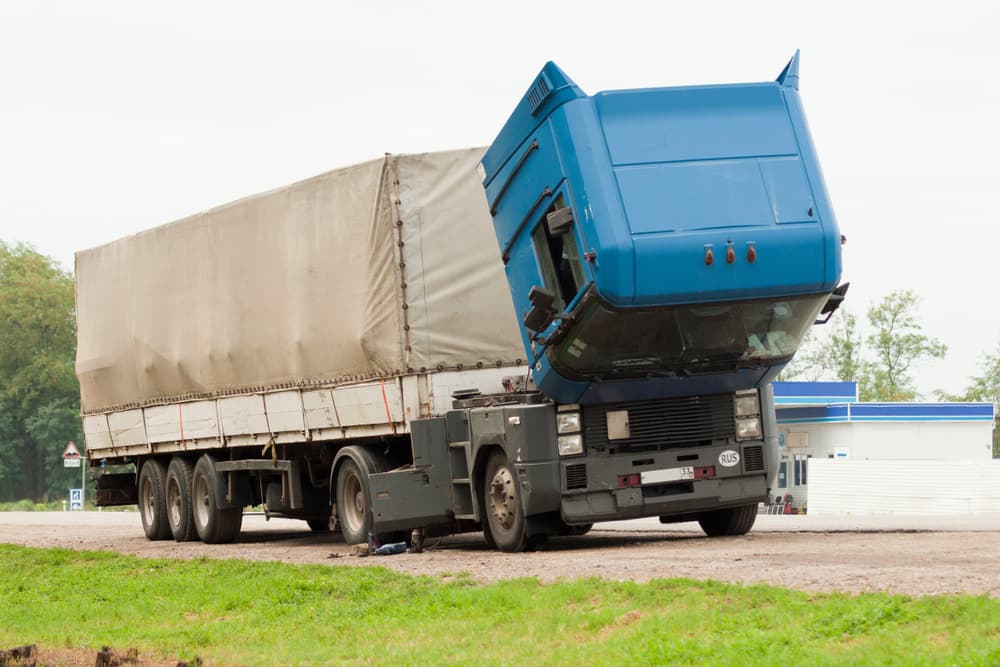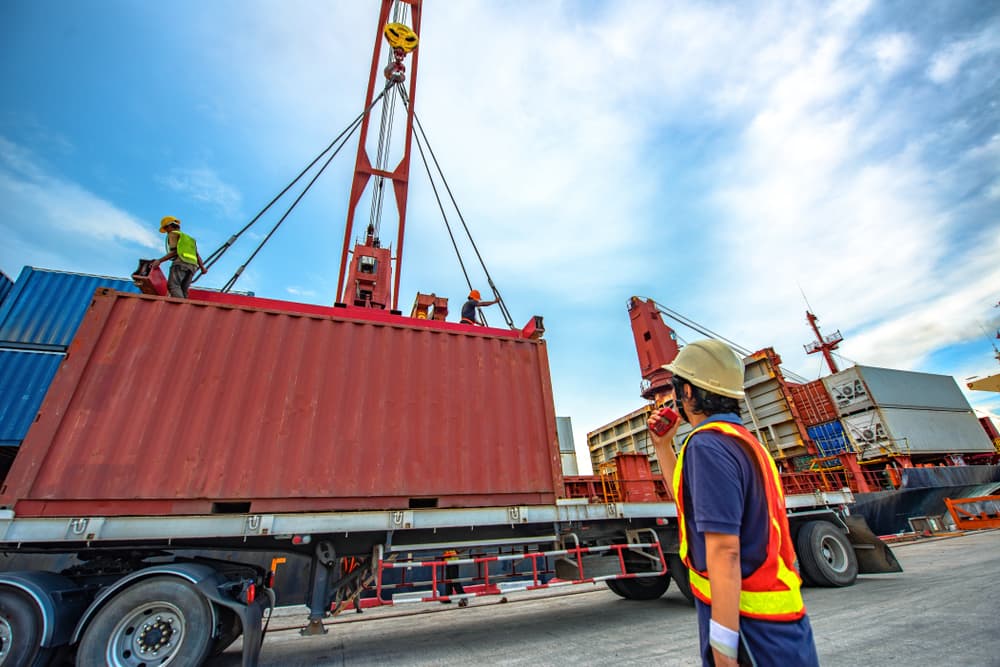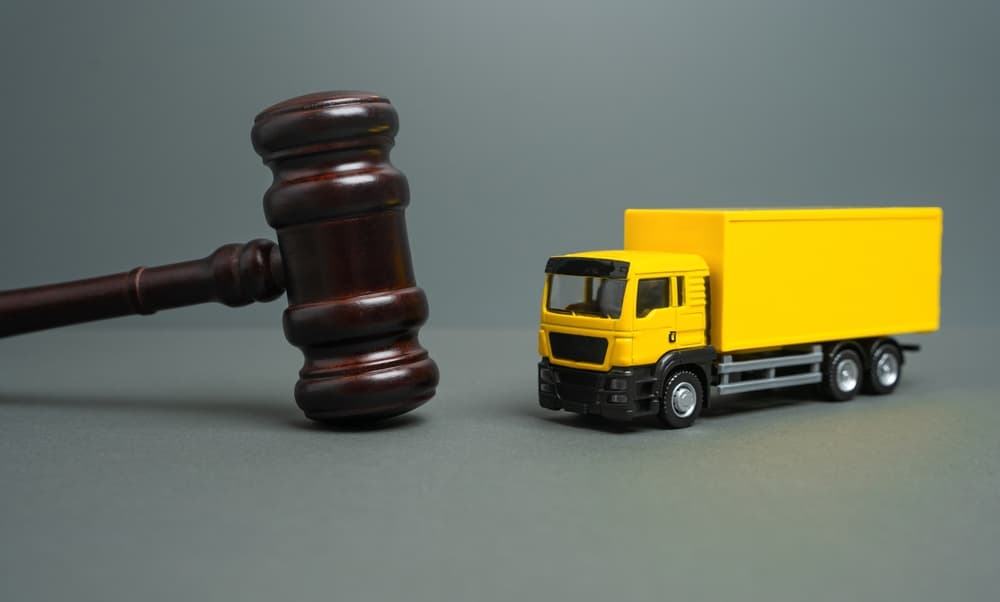When a massive truck barrels down the highway and something goes wrong, the aftermath isn't just twisted metal and flashing lights – it’s a legal maze no one wants to walk into without guidance. If you're hurt, stuck with bills, or just trying to figure out who’s responsible, you might ask yourself one big question: Is the truck driver to blame, or does the fault lie with the trucking company?
That question can shape your future, especially when dealing with long recovery times and mounting expenses. But the truth is, the answer’s rarely as simple as pointing a finger.
But let’s dig into what really matters when you’re the one affected. Liability in truck accidents isn’t just about checking who was behind the wheel. It’s about uncovering relationships, obligations, and the sometimes shady shortcuts taken by those who put profits ahead of people like you. You can make them pay with the help of a skilled truck accident lawyer.
Who Has Control Over the Truck?
When a crash happens, the first assumption is that the driver messed up. Maybe they were tired. Maybe they weren’t paying attention. And yes, sometimes that’s true. But before you rush to assign blame, it’s worth looking at who actually had control over that truck – not just physically, but contractually and financially.
Think about it. Many truckers don’t own the rigs they drive. They might be direct employees or “independent contractors” (more on these later) driving for a company that controls their routes, schedules, and load expectations. Even though the trucking company may try to keep its hands clean, it often pulls the strings behind the scenes. The pressure to meet deadlines, cut rest breaks short, or skip safety checks doesn’t always start with the driver. It often comes from higher up.
A truck accident attorney will dig into this chain of control. You might think it’s just about the driver, but your attorney will pull records, contracts, and communications showing the company's influence. If that company set impossible delivery times or ignored truck maintenance, it may carry far more responsibility than the person sitting behind the wheel.
Driver Errors vs. Company Policies

Let’s say the driver made a mistake. Maybe they turned too fast, or they missed a brake check. You’d think that means it’s their fault – and legally speaking, it might be. But don’t stop there. What if they were driving a faulty truck? Or were they told to skip a mandated break because the cargo was time-sensitive? That shifts the conversation.
Company policies often push drivers into dangerous corners. If drivers say no to a tight schedule, they risk losing routes or being fired. So, the company creates a system where risky driving is almost built-in. If a driver’s mistake came from following company orders or reacting to company pressure, your claim looks less like a solo act and more like a corporate failure.
A truck accident lawyer will review training records, internal emails, and dispatch logs. They’ll figure out whether the company had a culture of cutting corners. If so, your claim might go beyond the driver and hit the company directly, often opening up far more compensation options.
Maintenance Matters – And It’s Not Always the Driver’s Job
Trucks aren’t personal vehicles. Drivers don’t always get a say in the truck’s shape when they head out. Trucking companies usually handle maintenance – or contract it out. If brakes fail or tires blow out, the blame doesn’t necessarily rest on the person driving. It can fall on the people who were supposed to inspect, repair, or replace parts before that truck hit the road.
Here’s where things get complicated. Some companies own their fleet and maintain it in-house. Others use third-party maintenance providers or lease trucks from other companies entirely. That means your accident might involve layers of liability that aren't immediately visible. It’s not just about pointing at the truck driver – it’s about following the maintenance trail to whoever dropped the ball.
A truck accident attorney will chase down service records, inspection reports, and vendor contracts. They’ll figure out if faulty maintenance played a role – and if someone cut corners to save a buck, they’ll make sure it comes to light.
Driver Classification Isn’t Always What It Seems
You’ve probably heard the previously mentioned term “independent contractor.” Trucking companies love to use it. Why? When a driver is labeled that way, companies claim they’re not responsible for what that person does on the road. But just calling someone an independent contractor doesn’t make it true in the eyes of the law.
If a company controls the driver’s schedule, tells them what routes to take, and disciplines them for minor slip-ups, they’re basically treating that driver like an employee. And in that case, the company may be liable, no matter what the paperwork says.
That’s not just legal theory – it's a real strategy. A truck accident lawyer will dig into those relationships. They’ll ask the tough questions and determine whether that driver was working independently or was just a convenient scapegoat for a company that wants to dodge responsibility.
The Invisible Hand of Brokers and Shippers

Sometimes, the trucking company isn’t the only business behind the scenes. Brokers, freight forwarders, and shippers can play a huge role in how trucks are loaded, routed, and scheduled. And their decisions can directly affect your safety.
Suppose a shipper overloaded a trailer or failed to secure cargo properly. Shouldn't the shipper share the blame if that causes the truck to jackknife or roll over? Absolutely. Or maybe a broker connected the load with a trucking company that had a sketchy safety record. That’s not just bad judgment – it can be actionable.
Your attorney won’t stop at the trucking company. They’ll follow the logistics chain and find out who made the calls that led to the wreck. You deserve accountability from every party that put you in harm’s way, not just the one with a logo on the truck door.
Safety Culture Can Make or Break a Case
Some trucking companies treat safety like an annoying box to check. Others invest in it – real training, real oversight, real consequences for dangerous behavior. The difference between those two approaches can show up in the details of your case.
If a company ignored prior incidents, skipped re-training, or failed to monitor drivers’ hours and behavior, you’ve got more than a careless driver. You’ve got a company that fostered negligence. And once that pattern’s clear, the case stops being about one bad decision and starts being about a system built on risk.
A truck accident lawyer will look for red flags in the company’s record, from past crashes to violations logged with the Federal Motor Carrier Safety Administration (FMCSA). They’ll use those facts to build pressure, forcing real accountability for a poor safety culture.
Technology Can Prove Who’s Really at Fault
Commercial trucks aren’t just big and powerful – they’re smart. Most modern rigs come loaded with tech like dash cams, GPS tracking, electronic logging devices (ELDs), and speed governors. Every mile driven is logged, every break – or skipped break – is recorded, and every sharp turn or sudden brake is documented. This isn’t just about safety. It’s about creating a timeline that shows what happened before, during, and after a crash.
These digital systems capture more than you’d expect. GPS data can show whether the truck was speeding. Cameras can reveal what the driver was doing in the moments leading up to the crash. ELDs track how long the trucker had been driving and whether they took the federally required rest breaks. Speed governors can show if the vehicle was physically capable of going faster than it should’ve.
When something goes wrong on the road, this data tells a detailed story – if someone’s willing to read it.
Company Responsibility and Ignored Warning Signs
The presence of all this technology means trucking companies can’t play dumb. They know what’s happening with their drivers, often in real-time. If the data shows repeated violations – like skipped breaks or frequent speeding – and the company didn’t intervene, that’s not just poor oversight. That’s negligence.
A truck accident attorney won’t settle for vague explanations or half-truths. They’ll subpoena the data and analyze every detail. If a driver violated rest rules, they’ll uncover it. If dispatch kept pushing a driver already at the edge of their hours, they’ll expose it. If the company had access to that data but still failed to act, your attorney will highlight how those choices contributed to the crash.
The tech in trucks is meant to make the roads safer. When companies use it the right way, it can prevent accidents. But it becomes a liability when they ignore it – or worse, use it only to protect themselves after a wreck. And that’s when the data becomes your strongest ally in proving who’s at fault.
Corporate Insurance vs. Personal Insurance

There’s a big difference between suing a driver and going after a trucking company. When you go after the company, you’re usually tapping into a commercial insurance policy worth far more than any personal plan. That can mean the difference between covering your medical bills and drowning in debt.
But companies fight back harder when more money’s on the line. They hire legal teams, shift blame, and try to make you second-guess your claim. That’s why having the right legal strategy matters. Your lawyer won’t just file a claim – they’ll challenge corporate tactics, expose contradictions, and push for a result that actually helps you get back on your feet.
Why Trucking Companies Try to Shift the Blame
When a trucking company faces liability, it’s not just about paying for one accident. It’s about protecting its reputation, avoiding higher insurance premiums, and keeping federal regulators behind. That’s why companies rush to blame the driver – or even you. They might scrub their logs, delay releasing records, or argue that their policies had nothing to do with the crash.
But a skilled truck accident attorney knows what tactics these companies use. They’ll get court orders for records, find inconsistencies in statements, and use deposition testimony to reveal how decisions made at the top contributed to your pain. You don’t have to play defense—your attorney will put them on the hot seat instead.
When Multiple Parties Share Blame
Sometimes, liability is messy. You might have a case where the driver made a bad call, the company ignored maintenance issues, and the shipper overloaded the trailer. And when several parties played a part, your attorney will figure out who owes what and how to go after each one.
You might recover compensation from more than one source. That can mean more support for your recovery and less stress about medical debt or lost earnings. It’s not about going after everyone for the sake of it – it’s about holding every guilty party accountable for their piece of the puzzle.
Why It’s Never Just About the Truck
Trucks don’t crash in a vacuum. They’re part of a complex system involving people, policies, deadlines, machines, and money. It’s rarely just one person’s fault when that system breaks down. And if you’re the one paying the price, you shouldn’t have to settle for a shallow investigation or a one-size-fits-all answer.
A truck accident lawyer won’t look at your case the way a claims adjuster will. They’ll see the pressure, the cover-ups, and the corner-cutting for what it really is. They’ll flip the lens back onto the companies and forces that made your accident possible and do it with the full weight of the law.
Getting to the Real Cause Takes Determination from a Truck Accident Lawyer

Blaming the truck driver might feel like the obvious answer. But if you stop there, you can miss the bigger picture – and a bigger opportunity for justice. Whether it’s a company pushing too hard, ignoring safety warnings, or hiding behind shady contracts, there’s often more to the story than a single mistake behind the wheel.
You don’t have to figure it out alone. When you work with a personal injury attorney, they’ll peel back the layers and build a case that’s about truth, not shortcuts. They’ll challenge the trucking company's stories and go after every thread of responsibility.
You deserve a full picture – not a convenient one. And you deserve to hold the right people accountable, no matter how far up the chain that blame goes. Schedule a free case review with a lawyer so they can do precisely that.
